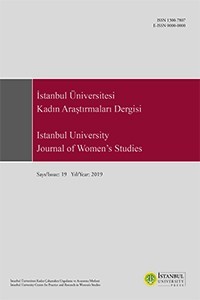
bell hooks (1952-2021), insan hakları için mücadele eden ABD vatandaşı siyahi bir kadın aktivisttir. Özellikle ABD’deki ırkçılık, sınıf ve toplumsal cinsiyet eşitsizlikleri alanında birçok çalışması olan bell hooks, feminizmle ilgili düşüncelerini de sözü edilen sorunlar bağlamında ele alan ve tartışan bir entelektüeldir. İşçi sınıfındaki siyahi bir aileye mensup olan bell hooks, 1960’lı yıllardan itibaren kadınların sosyal, siyasal ve kültürel gibi alanlar başta olmak birçok alanda yaşadıkları eşitsizlikleri gidermek için ortaya çıkan II. Dalga Feminizm Hareketi içinde yer alan ve mücadele eden önemli bir insan hakları savunucusudur. Feminizm mücadelesinin sadece beyaz, orta sınıf ve eğitimli kadınların hareketi olmadığını savunan bell hooks sınıf ayırımcılığı, ırkçılık, milliyetçilik, militarizm, homofobi ya da mizojini gibi sorunlarla feminizm hareketi yüzleşmediği ve mücadele etmediği sürece hem kadınlar arasında güçlü bir dayanışma bilincinin oluşmayacağını hem de bu hareketin başarıya ulaşmasının mümkün olmayacağını iddia eder. bell hooks “Ben Kadın değil miyim: Siyah Kadınlar ve Feminizm” (Ain’t I a Woman: Black Women and Feminism) adlı eserinde, feminist hareketin sınıf ve ırkçılıkla ilgili yönüne dikkat çekerek hareketin sadece belli bir gruptaki ya da sınıftaki kadınlar için değil, bütün kadınlar ve farklılıklara sahip olan bireyler için de mücadele etmesi gerektiğini savunur. bell hooks’un bu çıkışı feminizm hareketi içinde yaşananlara hem bir eleştiri zemini oluşturdu hem de yeni tartışmalara yol açtı. “Feminizmin cinsiyetçiliği, cinsiyetçi sömürüyü ve baskıyı sona erdirme hareketi” olduğunu iddia eden bell hooks, belli nitelikler ekseninde eşitsizliklere yol açan ve “beyazlığın görünmezliği” olarak karşılık bulan düşünceyi sürdürmek yerine toplumsal cinsiyet, ırk, sınıf ve cinselliğin karşılıklı bir ilişki içinde olduğunun altını çizer. Bunun gerçekleşmesi için bell hooks, feminizmi daha bütüncül açıdan ele alan bir “koalisyon feminizm” modeli önerir. Dolayısıyla bel hooks’a göre feminizm hareketinin başarıya ulaşması sadece kadınların mücadeyi desteklemeleriyle değil aynı zamanda erkeklerin de mücadeleye katılmalarıyla mümkün olabilir. Bu makalede bell hooks’un feminizm denildiğinde ne anladığı ve feminizme getirdiği eleştiriler ile feminist hareketin başarıya ulaşması için önerdiği çözüm yolları tartışılmaktadır.
bell hooks (1952–2021) was black female activist who fought for human rights. In a number f works on racism, class, and gender inequality in the USA, she discussed her thoughts on feminism in the context of these problems. Born into a black working-class family, bell hooks sought to defend human rights and was involved in Second Wave Feminism, which emerged in the 1960s to eliminate the inequalities experienced by women socially, politically, and culturally. She argued that the struggle for feminism could not be a movement of white, middle-class, educated women alone. Unless the feminist movement confronted and struggled with issues such as class discrimination, racism, nationalism, militarism, homophobia, and misogyny, women would be unable to build a sense of solidarity and the movement would not succeed. In her book “Ain’t I a Woman: Black Women and Feminism,” bell hooks drew attention to classist and racist aspects of the feminist movement. She argued that feminism should not be geared toward women of a certain group or class but should include women from across all intersections as well as individuals with differences. Her reasoning created a basis for criticism and led to new debates within he feminist movement. Claiming that “feminism is the movement to end sexism, sexist exploitation, and oppression,” bell hooks underlined the reciprocal relationships between gender, race, class, and sexuality instead of simply understanding inequalities along an axis of certain qualities that correspond to the “invisibility of whiteness.” To achieve this, she proposed a “coalition feminism” model that treated feminism more holistically. Thus, according to bell hooks, the success of the feminist movement depends not only on women’s support but also on male participation. In this article, bell hooks’s understanding of feminism, her critique of it, and the solutions she proposed to achieve the success of the feminist movement are discussed.

| Relevant Articles | Author | # |
|---|
| Article | Author | # |
|---|